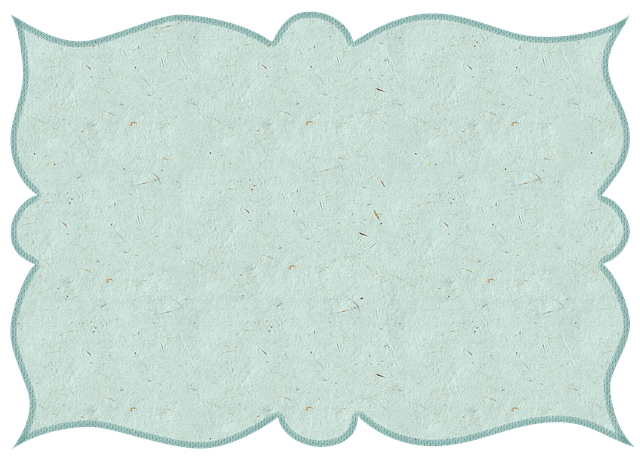Skin tags, common harmless growths, range from a few mm to several cm and can be removed for comfort or aesthetics. Home remedies like vinegar should be used with caution; professional advice from a dermatologist is crucial for safe and effective removal, especially in areas like Skin Tag Removal Birmingham. Vinegar softens skin cells holding tags, potentially causing natural shedding, but results vary. Conduct a patch test before applying vinegar to avoid irritation or disruptions to the skin's natural pH balance. Professional treatments in Birmingham offer safe, effective solutions with minimal pain and faster results compared to DIY remedies.
Are skin tags on your list of things to address? Fortunately, there’s a natural remedy that might help with removal: vinegar. This versatile substance has long been used for its healing properties, including soothing skin irritations and reducing inflammation. In this guide, we’ll explore how vinegar can be utilized as a potential solution for getting rid of skin tags. We’ll cover everything from understanding these small growths to a simple, at-home application process, along with safety tips relevant even in areas like Birmingham known for their top dermatological care.
Understanding Skin Tags: Causes and Appearance

Skin tags, also known as acrochordons, are small, soft skin growths that typically appear in areas where skin rubs against itself, such as the neck, armpits, or groin. They are usually harmless and often hereditary, but some people may develop them due to weight gain, hormonal changes, or frequent friction. These tags can vary in size, ranging from a few millimetres to several centimetres, and often resemble small, soft balls or patches of skin that stick out. Despite their benign nature, many individuals choose to remove skin tags for aesthetic reasons or to alleviate discomfort caused by their location or size.
If you’re considering Skin Tag Removal Birmingham, it’s important to understand that vinegar is a popular home remedy believed to shrink and eliminate these growths. However, while DIY treatments have their appeal, seeking professional advice from a qualified dermatologist is essential for safe and effective skin tag removal. A dermatologist can provide tailored solutions, ensuring the right approach based on individual needs and medical history, especially if the tags are persistent or causing distress.
Vinegar as a Natural Remedy for Skin Tags

Vinegar, a common household ingredient, has long been recognised for its various health and beauty benefits, including its potential as a natural remedy for skin tags. Skin tag removal Birmingham often seeks alternatives to surgical procedures, and vinegar offers a simple, at-home solution. This acidic liquid can help dissolve the connective tissue that attaches skin tags to the underlying skin. By applying diluted vinegar directly to the affected area, users may experience reduced skin tags over time.
The acetic acid present in vinegar can soften the skin cells holding the tag in place, promoting its natural shedding. It’s important to note that while vinegar shows promise as a gentle, natural approach to skin tag removal, results may vary from person to person. As with any home remedy, it’s crucial to consult a dermatologist if concerns persist or if skin tags exhibit any signs of infection or irritation during the treatment process.
The Step-by-Step Process of Vinegar Application

Removing skin tags with vinegar is a simple and natural method gaining popularity, even for those seeking effective Skin Tag Removal Birmingham. Here’s how to do it in a step-by-step process: first, sterilize the affected area with rubbing alcohol to prevent any potential infection. Then, soak a cotton ball in white vinegar, ensuring it’s thoroughly saturated. Press the soaked cotton ball gently onto the skin tag for about 10 minutes. This direct contact allows the vinegar’s acetic acid to dissolve the skin cell bonds holding the tag in place. After 10 minutes, carefully remove the cotton ball and rinse the area with warm water. Gently dry it before dressing to avoid irritation. Repeat this process daily until the skin tag falls off, which can take up to a week. Remember, consistency is key for successful Skin Tag Removal Birmingham using this natural remedy.
Safety Precautions and Potential Side Effects

While using vinegar for skin tag removal is a popular home remedy, it’s crucial to approach this method with caution. Safety should always be your top priority when considering any DIY skincare treatment, especially in areas like Skin Tag Removal Birmingham where professional expertise is readily available. Before applying vinegar, perform a patch test on a small area of skin to check for potential irritation or allergic reactions. Vinegar can cause stinging, redness, or dryness, particularly if it comes into contact with sensitive skin. It’s also essential to avoid using it near your eyes, as this could lead to severe discomfort and damage.
Additionally, long-term exposure to vinegar may impact the skin’s natural pH balance, potentially leading to further skin issues. If used improperly, it could cause skin irritation or even a burning sensation. It’s recommended to consult a dermatologist in Birmingham for safe and effective skin tag removal options tailored to your specific needs. They can guide you through professional treatments like cryotherapy, surgical excision, or laser removal, ensuring minimal pain and fast results without the risks associated with home remedies.
When considering skin tag removal in Birmingham, it’s worth exploring natural remedies like vinegar as a safe, non-invasive option. This article has outlined the causes and appearance of skin tags, positioned vinegar as a viable alternative treatment, detailed a simple application process, and highlighted key safety precautions. While side effects are minimal, individual results may vary, emphasizing the importance of thorough research and consultation with healthcare professionals prior to attempting any removal method.
